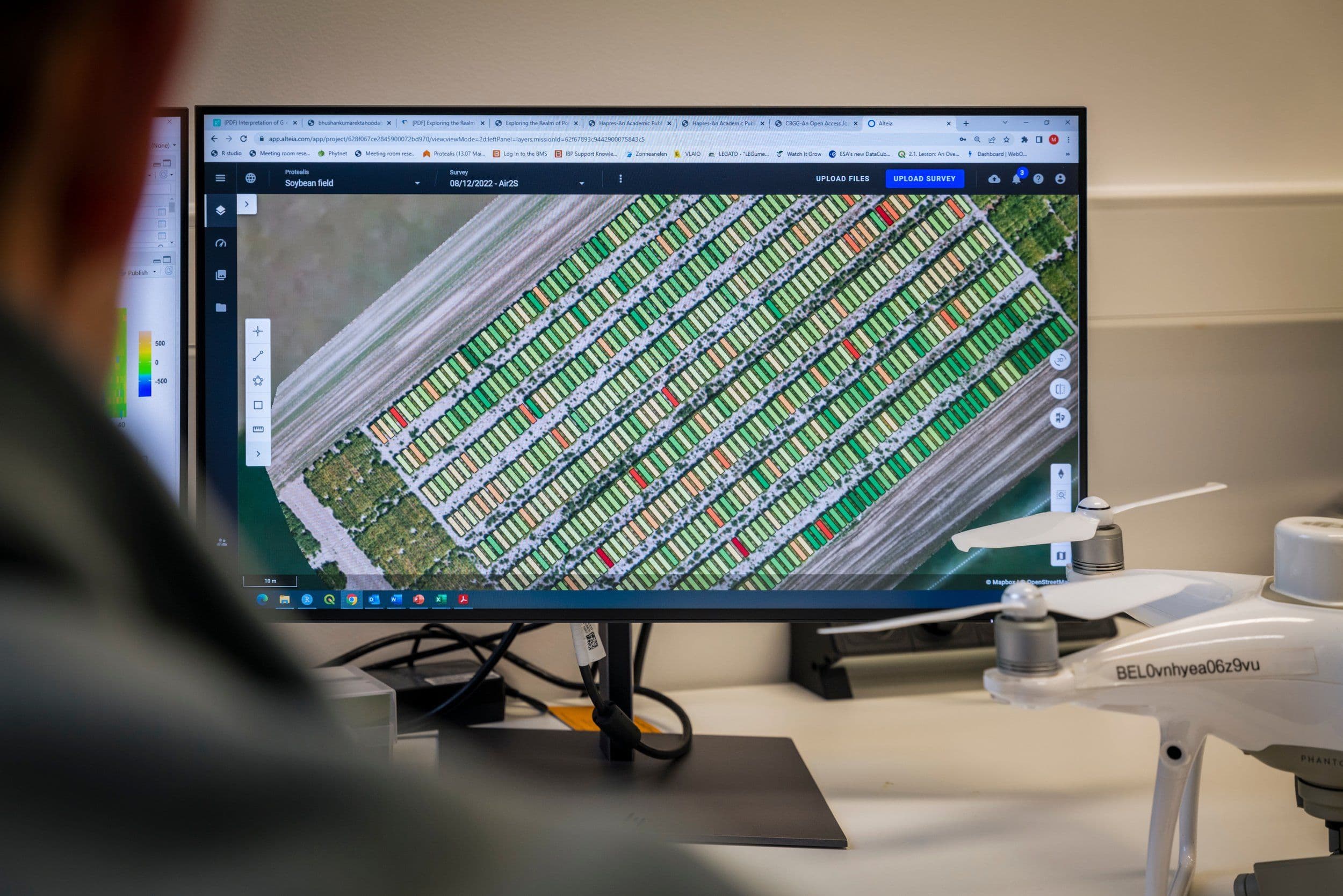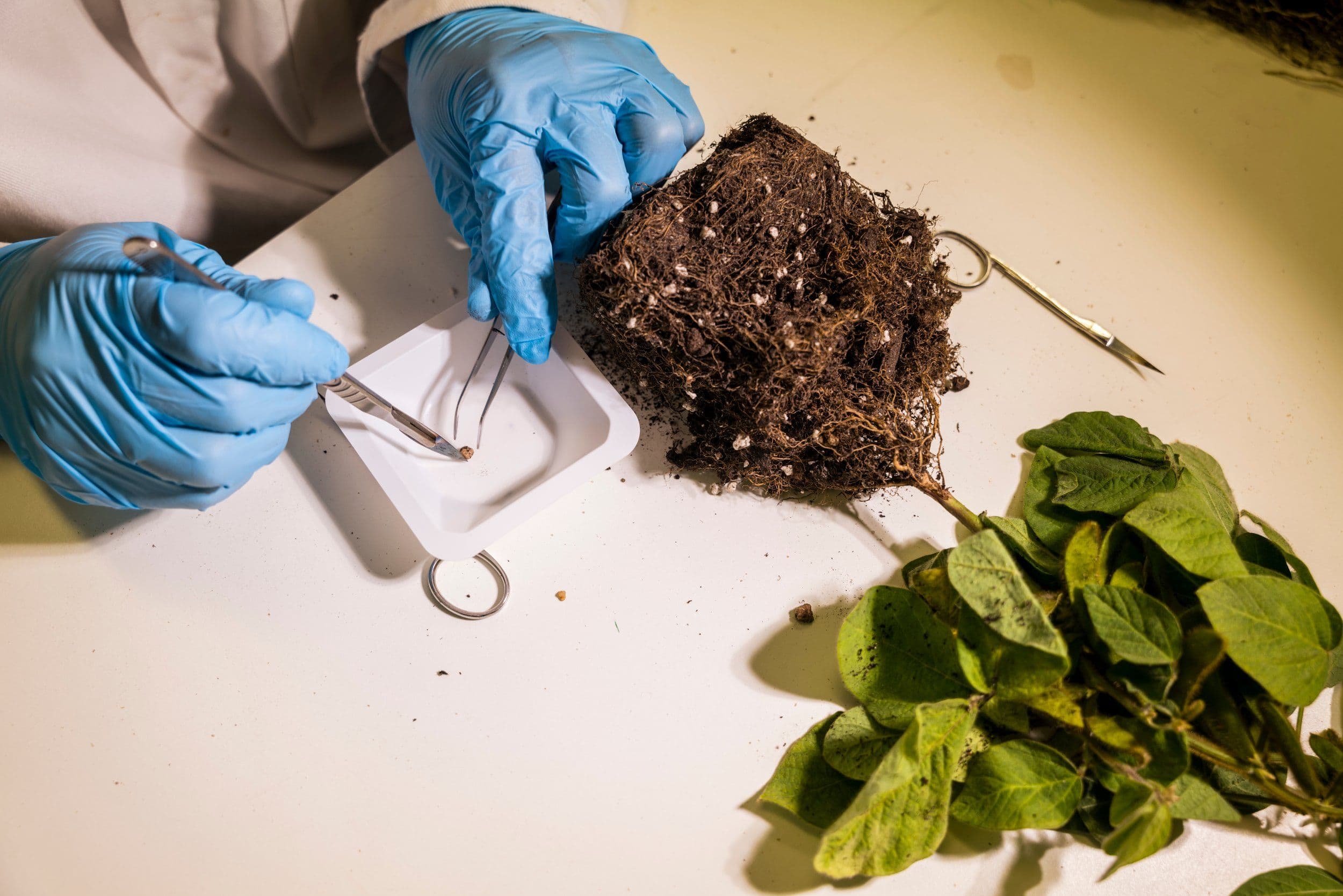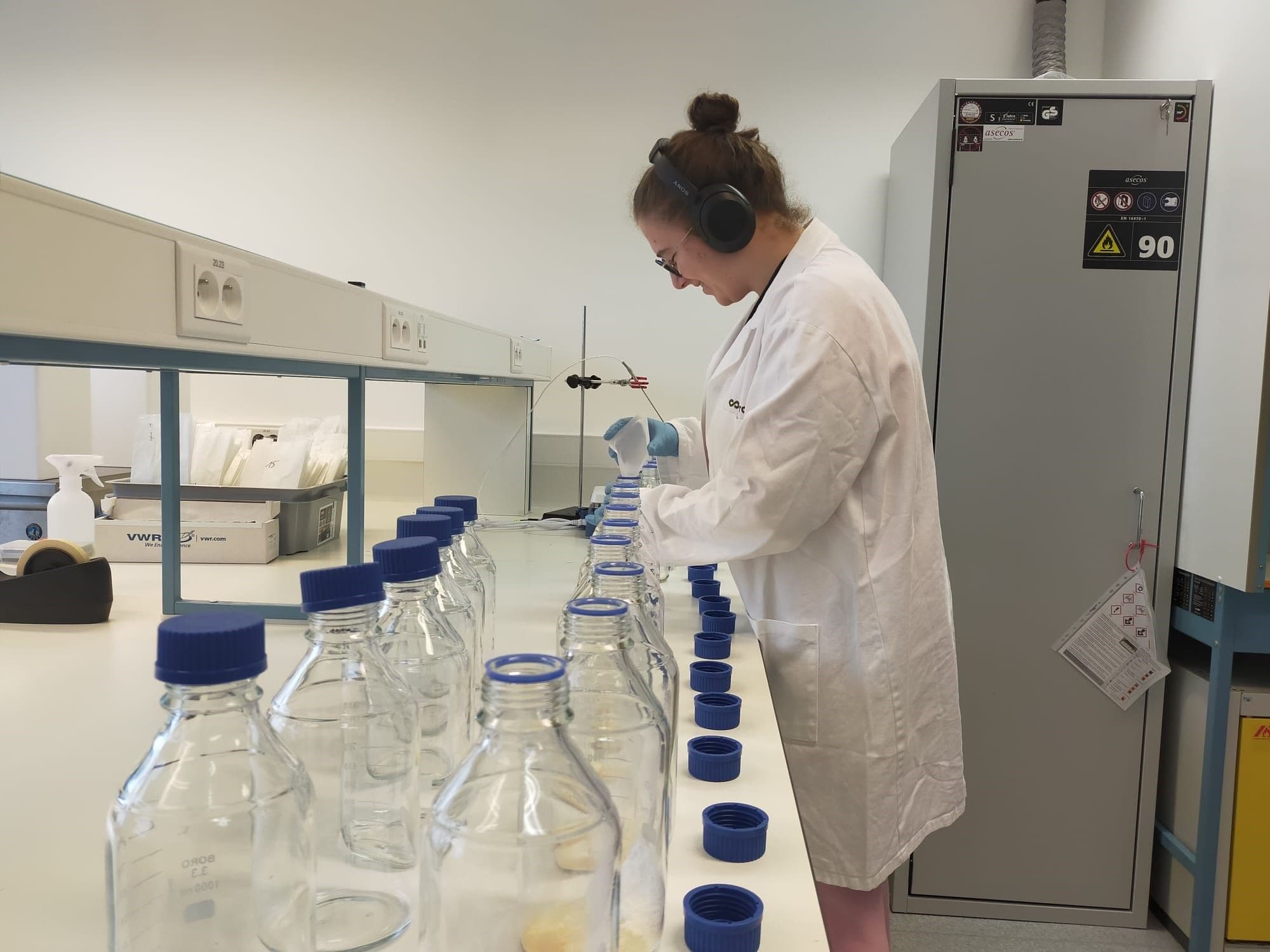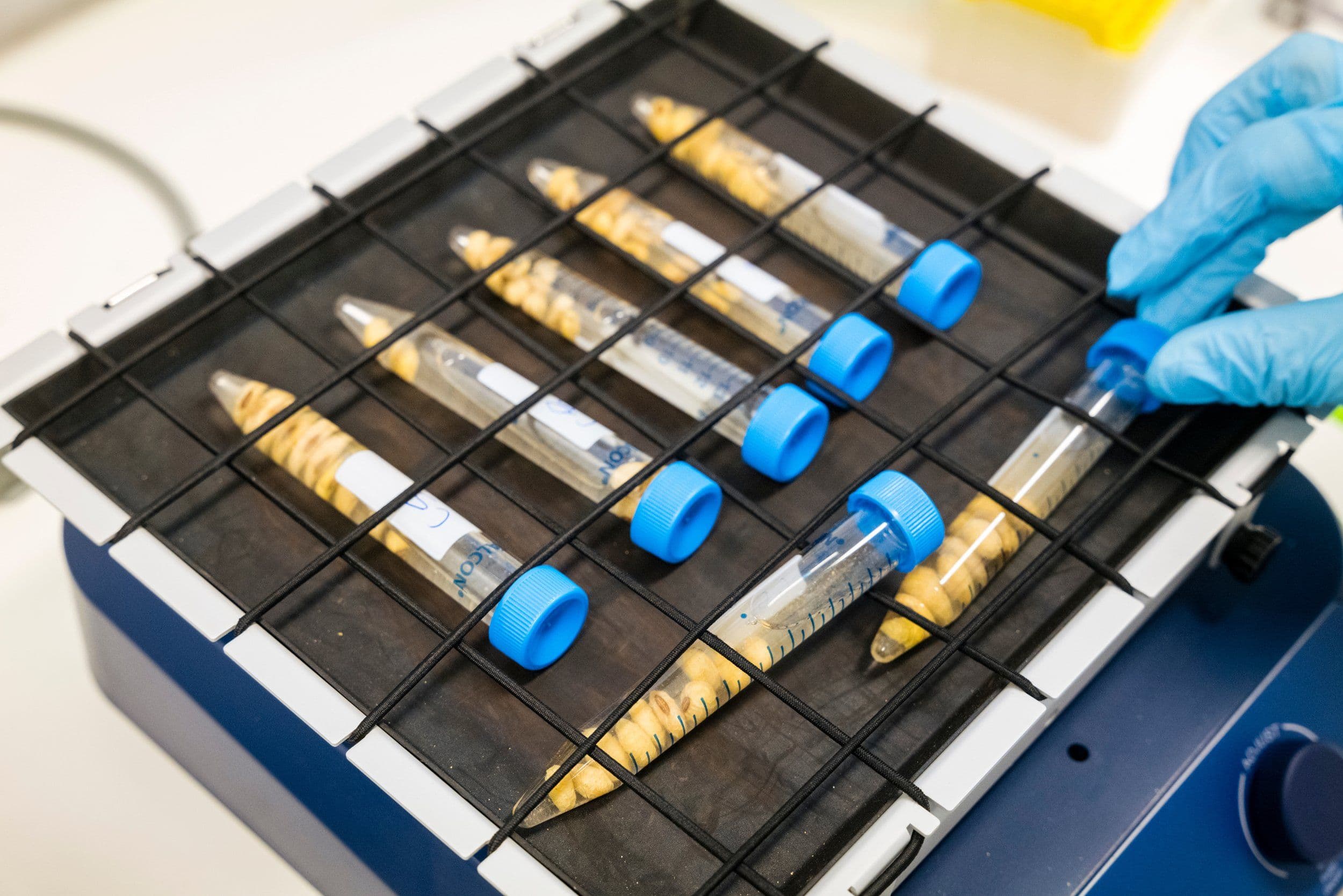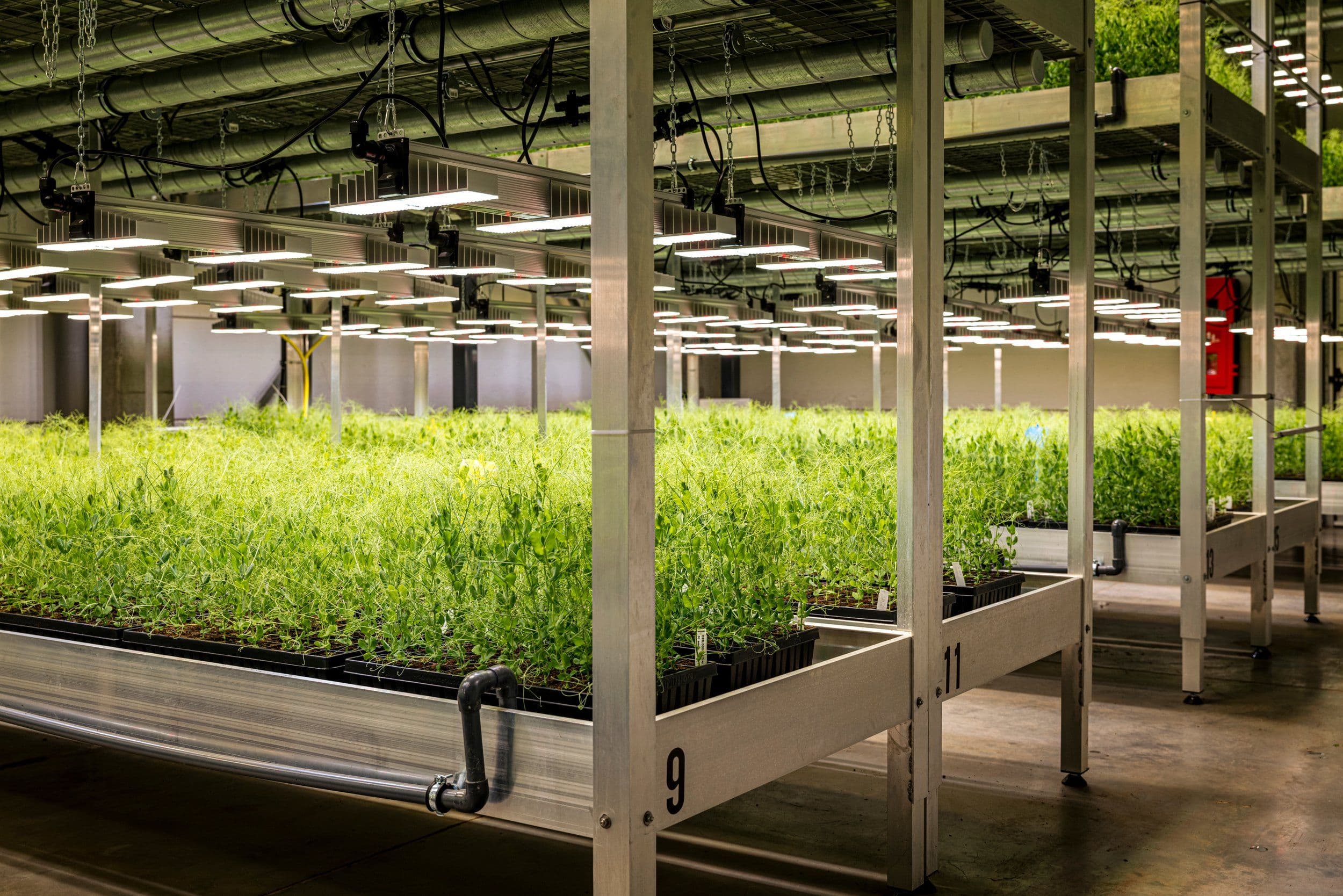
Non-GMO Soybean / Euro*
- Jun 25
- DE North 461
- DE South 439
- Austria 446
- Hungary 434
- Italy 430
- Jul – Sep 25
- DE North 470
- DE South 447
- Austria 447
- Hungary 437
- Italy 430
- Oct – Dec 25
- DE North 478
- DE South 454
- Austria 449
- Hungary 443
- Italy 432
- Jan – Feb 26
- DE North 478
- DE South 454
- Austria 449
- Hungary 443
- Italy 432
Our research
At Protealis we believe that legume crops can become an essential part of our future agriculture. That is why we invest in high-tech breeding techniques. Moreover, to enable these crops to thrive in our area, we are conducting research on seed coatings with proprietary yield-enhancing soil bacteria.
Where other breeders deploy their resources and technology on the biggest markets like wheat and maize, we are resolutely investing in the crops of the future.
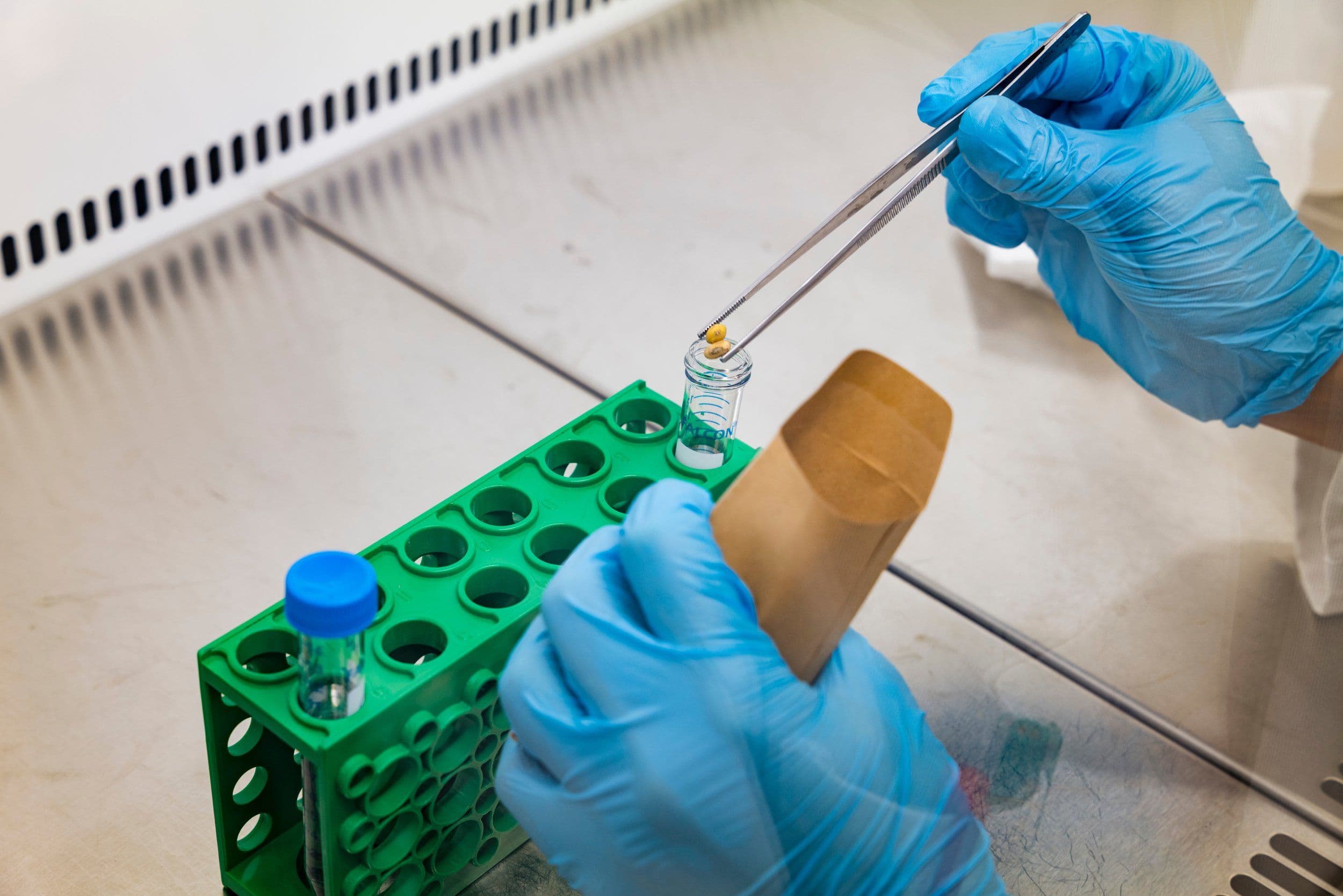
Innovative breeding technologies
Because we believe that legume crops have the potential to become a worthy and competitive alternative to other crops in the future, we are investing in high-tech breeding techniques.
Since the end of 2022 we have been been fully implementing speed breeding in all our breeding programs. Speed breeding reduces the breeding cycle and fastens crop research by producing many generations within a short period of time. Thanks to speed breeding, we can shorten the breeding cycle by at least three years.
Speed breeding works very complementary with DelphiTM. DelphiTM (supported by VLAIO) is our proprietary approach to combine genetics, artificial intelligence, automated field data collection and remote sensing to maximize genetic gain per breeding cycle and optimize the use of the available throughput capacity.
Thanks to our innovative breeding technologies, we can accelerate the introduction of new and better varieties to the market, respond to the rapidly rising market demand, and address the urgency to have both economic and ecologically sustainable farming options.
Microbial research on proprietary seed coatings
Soy is a leguminous plant that can bind nitrogen from the air through its root nodules, which are formed in symbiosis with Rhizobia bacteria, thus meeting its own nitrogen needs. But since these bacteria do not occur naturally in our agricultural soils, soybean seeds must be inoculated with Rhizobia bacteria before sowing.
We developed a unique technology* to coat live N-fixing bacteria on soybean seeds and are conducting further research on N-fixing Rhizobia bacteria strains that remain biologically active even in the temperate Western European climate. Inoculation with nodulating bacteria adapted to conditions in our latitudes avoids the need for nitrogen fertilization on the one hand and increases yield and protein content on the other. By applying the microbes to the seed coating in advance, we ensure consistent inoculation and provide convenience for farmers.
(*With support from NextGenerationEU and VLAIO)

